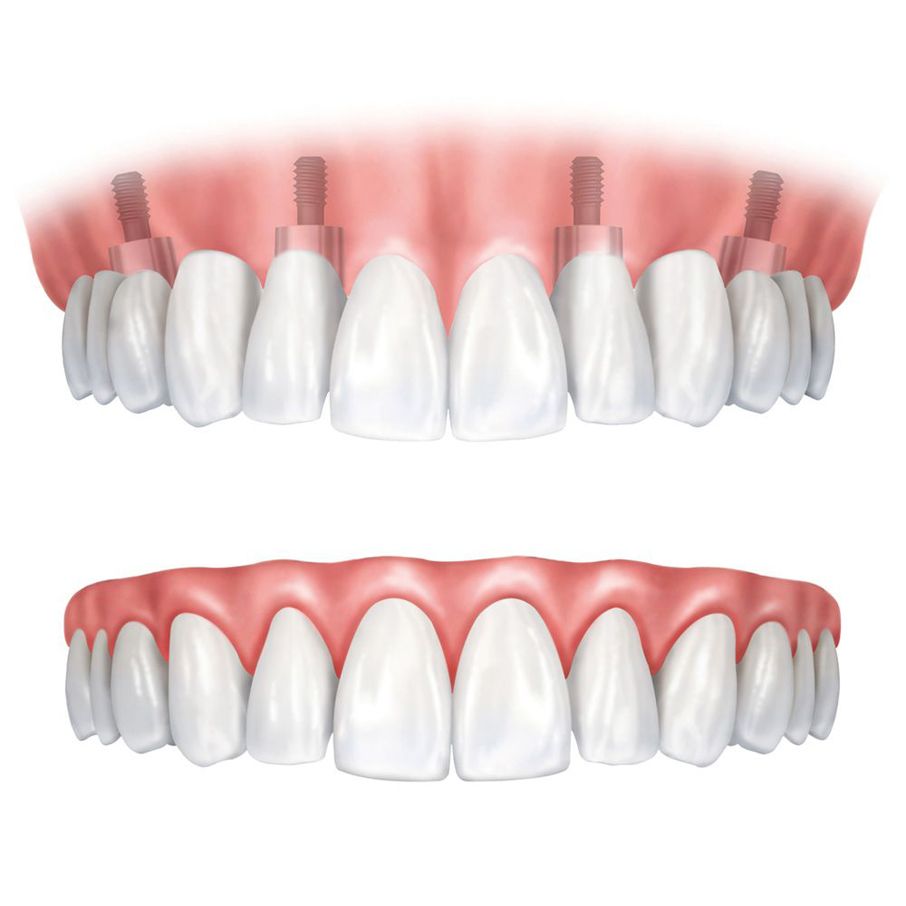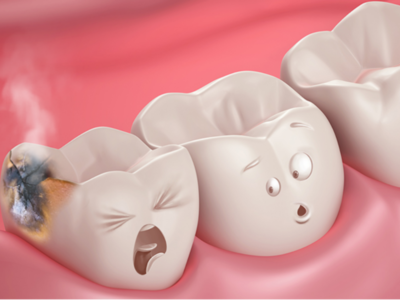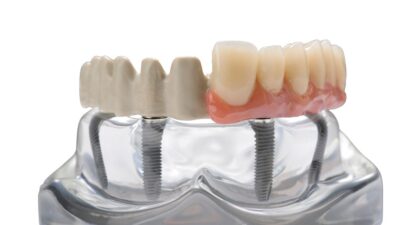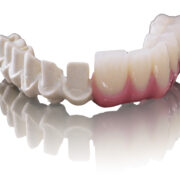A dental crown is a cap that is used to repair a broken tooth, improving its size, strength, and look. To ensure patient comfort, a local anesthetic is usually applied to the affected area before the surgery. It follows that you shouldn’t experience any pain when the crown is being placed. This article will discuss the variables that affect how comfortable dental crowns are as well as offer advice on how to heal quickly. So, stay tuned for a thorough response if you’re asking, “Is a dental crown painful?”
When is a Dental Crown?
A dental crown, sometimes referred to as a dental cap, is a prosthetic replacement that completely covers a tooth that is weak or broken. The tooth’s size, strength, form, and look are all intended to be restored. Usually, porcelain, ceramic, metal alloys, or a mix of these materials are used to create sturdy crowns.
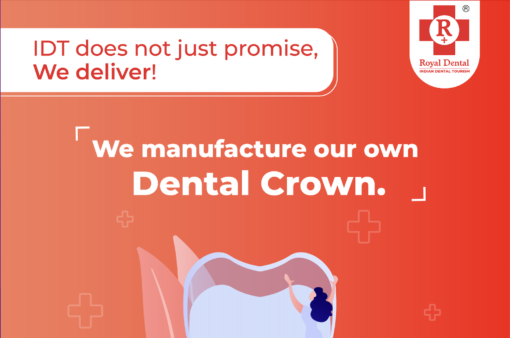
When is a dental crown necessary?
A crown can offer more strength and protection if a tooth has big fillings that have caused it to become broken, severely decaying, or weaker. Because the tooth’s structure may become brittle after a root canal treatment, a crown is frequently inserted to restore the tooth’s strength and function. To restore shape, size, and function to severely chipped, cracked, or fractured teeth, a crown may be necessary.
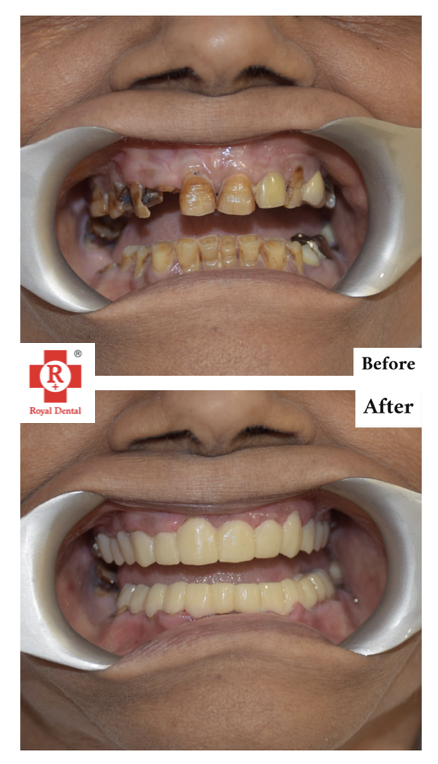
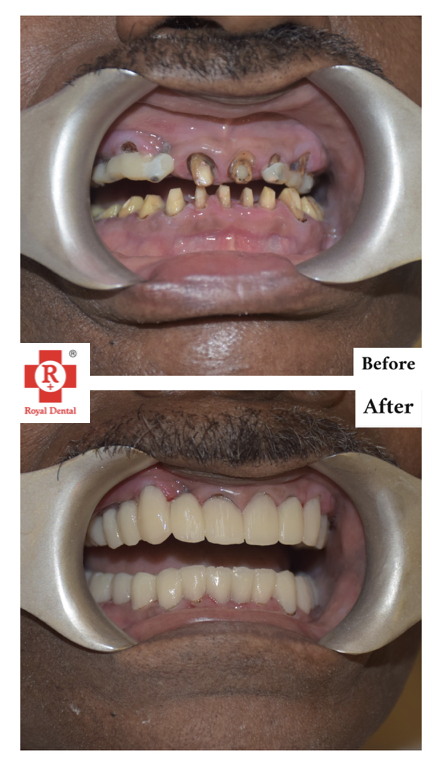
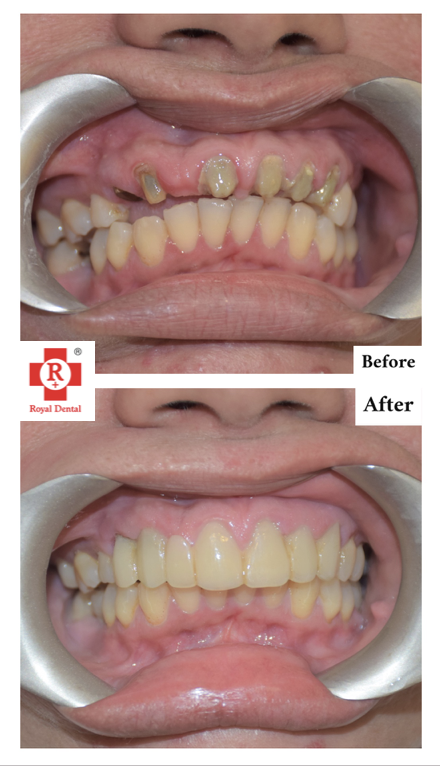
Dental bridges, which are used to replace one or more lost teeth, are anchored by crowns. Crowns can make teeth that are ill-shaped, stained, or misaligned look better overall, improving the smile’s aesthetic appeal. A crown is placed on top of a dental implant that was used to replace a lost tooth in order to restore both function and aesthetics. Crowns can help repair the structure and function of teeth that have experienced severe wear and tear from bruxism (teeth grinding) or aging.
What is the procedure for getting a dental crown?
- An in-depth assessment of your oral health precedes the process. After discussing your options for treatment, Dr. Chirag Chamria will evaluate the state of the tooth that needs a crown.
- The tooth is prepped by taking off a small portion of its outer structure prior to the crown being placed. In this process, the crown will be made to fit over the tooth tightly and firmly.
- A custom-fit crown is made by taking an impression of the prepared tooth. To create a crown that is the exact size, shape, and color of your real teeth, this imprint is submitted to a dental lab.
- The permanent crown will be placed after it is ready, usually in a few hours. Just before the crown is completely bonded to the prepared tooth, Dr. Chamria will examine its fit and appearance.
- Adjustments are made as needed to guarantee optimal biting alignment and comfort following the crown’s placement.
- In order to take good care of your new crown, Dr. Chamria will provide you with recommendations on what foods to avoid and how to maintain good oral hygiene.
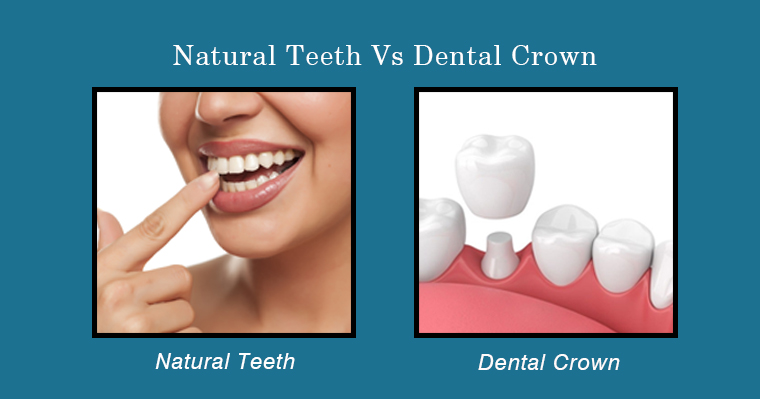
Is a Dental Crown Painful?
In most cases, receiving a dental crown is not an uncomfortable procedure. To make sure you are pain-free during the process, a local anesthetic is used to numb the area surrounding the tooth. The crown implantation and tooth preparation are essentially painless thanks to this numbing action. It’s important to remember, though, that when the anesthesia wears off, some people may experience slight discomfort or sensitivity. As advised by your dentist, you can generally control this discomfort by taking over-the-counter pain medicines such as acetaminophen or ibuprofen.
FAQs
Q. How long does it take to get a dental crown?
A dental crown often requires two or three appointments spread out over a few days to weeks for the full process, including preparation, impression taking, and placement; however, at Royal Dental Clinics, the operation is finished in a single day.
Q. How long do dental crowns last?
Dental crowns can last up to 15 years or longer with the right upkeep and care. Longevity depends on maintaining proper oral hygiene and scheduling routine dental exams.
Q. Can dental crowns be whitened?
Conventional whitening techniques have no effect on dental crowns. Talk to Dr. Chirag Chamria about the possibilities of getting a new, lighter-colored crown if you wish to make your crown look better.
Q. Are there any restrictions after getting a dental crown?
Chewing on hard or sticky foods should be avoided for a few days following dental crown placement in order to give the crown time to settle in. It’s also very important to maintain proper oral hygiene.
Q. Can a dental crown fall off?
Dental crowns can occasionally come loose or fall off, even though they are meant to be strong and secure. These factors can include trauma, poor oral care, and underlying tooth problems. To get this assessed and fixed, get in touch with Dr. Chirag Chamria.
Conclusion
Ultimately, the application of local anesthetics has made the procedure of receiving a dental crown less uncomfortable. Post-procedure discomfort can be managed with over-the-counter pain medicines; however, some patients may endure mild discomfort. Following post-crown care instructions is crucial for optimum comfort and longevity, as stressed by Dr. Chirag Chamria. Dental crowns are a long-lasting remedy for a variety of dental issues. With the right maintenance, they can effectively restore tooth function and color.
© All rights reserved by Royal Dental Implants Pvt Ltd Issued in the public interest








